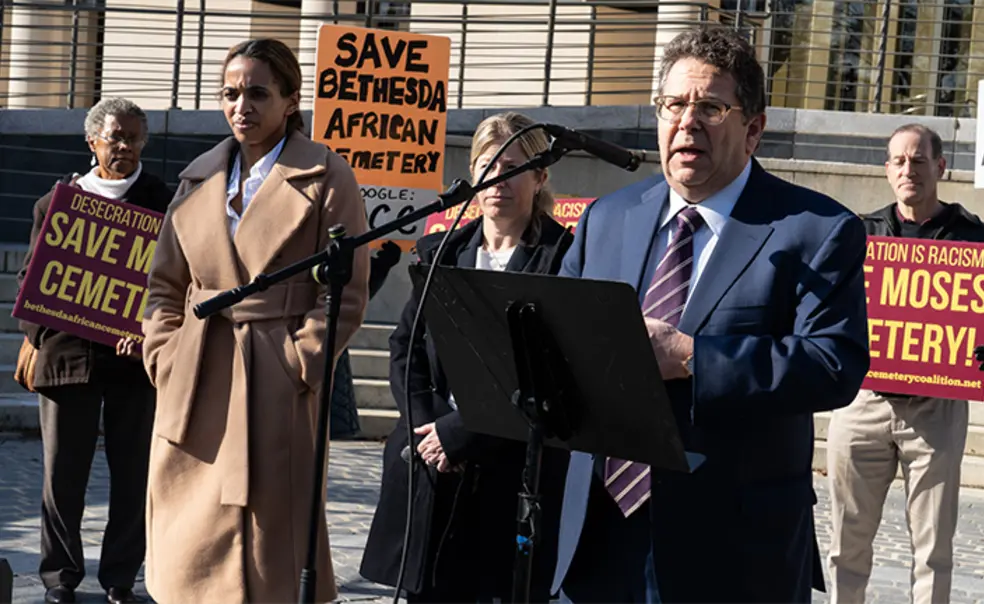Attorney Steven Lieberman ’80 Is Arguing for an African-American Burial Ground
Previously Lieberman halted construction at a Holocaust death camp in Poland
Steven Lieberman ’80 has a long list of high-profile clients — including media corporations, Fortune 500 companies, and start-ups — and he recently got a lot of press for a copyright infringement lawsuit he filed on behalf of The New York Times against OpenAI and Microsoft.
Given that background, and his experience as a First Amendment lawyer who specializes in intellectual property litigation, the high-profile case he wanted to talk to PAW about might sound out of the blue: Lieberman is currently representing the Bethesda African Cemetery Coalition with the intent to stop the sale of a piece of land that contains a burial ground.
It’s not his first pro bono case like this. Several years ago, Lieberman successfully sued to halt construction at a death camp in Belzec, Poland, where hundreds of thousands of Jews were murdered during the Holocaust and a new memorial would have required digging a trench through a mass grave. “So I guess that made me one of the few people in the world who is an expert in burial law,” Lieberman says.
The Bethesda burial ground contains hundreds of bodies of formerly enslaved people and their descendants. The plot of land was sold in the 1960s and a developer bulldozed the burial grounds, discarded the headstones, and put in a parking lot for a luxury housing tower next door. As the current owners of the land attempt to sell it, the Maryland Supreme Court is now weighing whether state law could prohibit that sale. Lieberman says if the sale is prevented, his team would then attempt to get the owner of the property to remove the parking lot and restore the burial ground.
“It’s just so meaningful when you can see that you’re taking a community that has essentially been disrespected and abused for decades, and now they feel that they have representation — that they’re a voice at the table,” Lieberman says. “That’s just very satisfying for all the lawyers who work on the case, so it’s very easy to get people to volunteer to help.”
In addition to feeling good about the work he’s doing, Lieberman says, this case could end up having a broad societal impact. According to Lieberman, there are currently 150 registered African American burial grounds that have been abandoned and desecrated by construction on top of them. “We’re hoping that this case will provide a roadmap for people all around the country to try to fix the situation involving the burial grounds in their area,” he says.
This sort of broad impact is part of Lieberman’s goal with all of the pro bono work he takes on. He says it’s is an “integral part” of his practice and he devotes about 20-25% of his time to these cases.
He attributes the dedication in part to Princeton, where he met his wife, Sharon Silverman Lieberman ’80, during their constitutional law seminar. “At Princeton, I learned the importance of using your education and the training that you get to try to impact the world in a positive way,” he says. “When you look back at your career... it makes you feel good about the time you spent practicing law.”












No responses yet